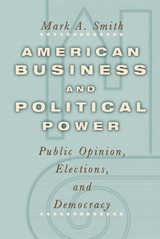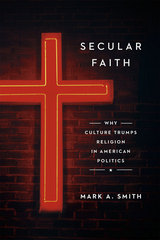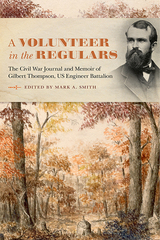
Rather than succumbing to corporate America, Smith argues, representatives paradoxically become more responsive to their constituents when facing a united corporate front. Corporations gain the most influence over legislation when they work with organizations such as think tanks to shape Americans' beliefs about what government should and should not do.

The system of coastal defenses built by the federal government after the War of 1812 was more than a series of forts standing guard over a watery frontier. It was an integrated and comprehensive plan of national defense developed by the US Army Corps of Engineers, and it represented the nation’s first peacetime defense policy.
Known as the Third System since it replaced two earlier attempts, it included coastal fortifications but also denoted the values of the society that created it. The governing defense policy was one that combined permanent fortifications to defend seaports, a national militia system, and a small regular army.
The Third System remained the defense paradigm in the United States from 1816 to 1861, when the onset of the Civil War changed the standard. In addition to providing the country with military security, the system also provided the context for the ongoing discussion in Congress over national defense through annual congressional debates on military funding.

Mark A. Smith provocatively argues that religion is not nearly the unchanging conservative influence in American politics that we have come to think it is. In fact, in the long run, religion is best understood as responding to changing political and cultural values rather than shaping them. Smith makes his case by charting five contentious issues in America’s history: slavery, divorce, homosexuality, abortion, and women’s rights. For each, he shows how the political views of even the most conservative Christians evolved in the same direction as the rest of society—perhaps not as swiftly, but always on the same arc. During periods of cultural transition, Christian leaders do resist prevailing values and behaviors, but those same leaders inevitably acquiesce—often by reinterpreting the Bible—if their positions become no longer tenable. Secular ideas and influences thereby shape the ways Christians read and interpret their scriptures.
So powerful are the cultural and societal norms surrounding us that Christians in America today hold more in common morally and politically with their atheist neighbors than with the Christians of earlier centuries. In fact, the strongest predictors of people’s moral beliefs are not their religious commitments or lack thereof but rather when and where they were born. A thoroughly researched and ultimately hopeful book on the prospects for political harmony, Secular Faith demonstrates how, over the long run, boundaries of secular and religious cultures converge.

At the outbreak of the Civil War, Massachusetts native Gilbert Thompson joined the regular army, which assigned him to the engineer battalion, a unit that provided critical support for the Union military effort in building bridges and roads and surveying and producing maps. While serving, Thompson kept a journal that eventually filled three volumes. The author’s early education in a utopian community called Hopedale left him well read, affording a journal peppered with literary allusions. Once the war ended, Corporal Thompson added some postwar reflections to create a unified single volume, which editor Mark A. Smith has carefully arranged so that the reader can clearly distinguish between Thompson’s contemporary accounts and his postwar reminiscences. An accomplished artist and topographer, Thompson illustrated his journals, adding depth to his narrative with portraits of key figures, drawings of ordinary scenes such as soldiers playing chess, and sights of the war. Additionally, he collected photographs both during and after the war, many of which are included.
Thompson’s wartime musings and postwar recollections have much to offer. Few diaries contain glimpses into the workings of a highly specialized unit such as the engineer battalion, and Thompson’s skills in depicting daily camp life in both words and pictures provide a distinctive look at the Union Army during the Civil War as well as an insightful look into the human condition. In his 1879 introduction, Thompson writes, “I wonder how I wrote as much and as well, and am thankful I was so fortunate as to have the opportunity to do so.” Students of the Civil War will feel fortunate he did.
READERS
Browse our collection.
PUBLISHERS
See BiblioVault's publisher services.
STUDENT SERVICES
Files for college accessibility offices.
UChicago Accessibility Resources
home | accessibility | search | about | contact us
BiblioVault ® 2001 - 2024
The University of Chicago Press









